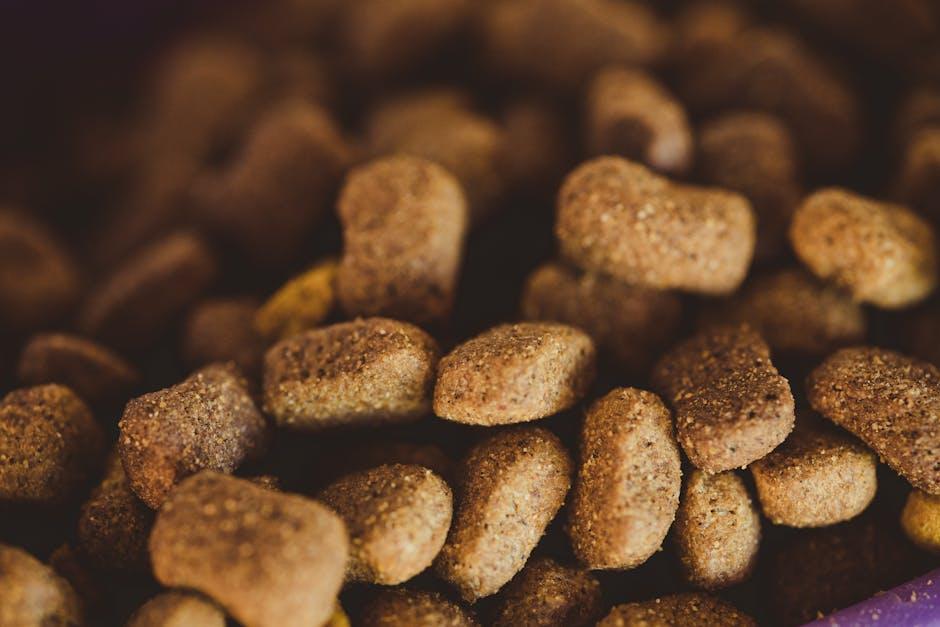Welcoming a new puppy into your home is an exciting adventure filled with joy, cuddles, and the occasional chewed-up shoe. As a responsible pet owner, you want to ensure your furry friend grows up healthy and strong, and one of the key elements to achieving this is through proper nutrition. At the heart of a balanced diet for your puppy is protein, a vital nutrient that plays a crucial role in their development. In this article, we’ll explore the importance of protein in your puppy’s diet, helping you understand why it is essential for their growth, energy levels, and overall well-being. Whether you’re a first-time puppy parent or a seasoned dog lover, our guide will provide you with the knowledge you need to make informed decisions about your puppy’s nutritional needs, ensuring they thrive during these formative months and beyond.
Understanding Protein Needs for Growing Puppies
When it comes to the growth and development of puppies, protein plays a pivotal role. As the building blocks of muscles, organs, and tissues, proteins are essential for ensuring that your puppy grows up strong and healthy. During the early stages of life, puppies experience rapid growth, and their bodies require a higher percentage of protein compared to adult dogs. This is why it’s crucial to choose a diet specifically formulated to meet their unique nutritional needs.
- Muscle Development: Proteins provide the amino acids necessary for building and repairing muscles, ensuring your puppy develops strong, lean muscle mass.
- Immune System Support: A diet rich in protein helps bolster the immune system, enabling your puppy to fend off illnesses and infections more effectively.
- Healthy Skin and Coat: Adequate protein intake contributes to a shiny coat and healthy skin, helping your puppy look and feel their best.
To ensure your puppy receives the right amount of protein, look for high-quality dog foods that list real meat as the first ingredient. This indicates a higher protein content, which is vital for their growth. Remember, every puppy is different, so consult with your veterinarian to determine the specific protein needs based on breed, size, and activity level.

Choosing High-Quality Protein Sources for Optimal Health
When it comes to nurturing your puppy’s growth and development, selecting the right protein sources is crucial. Proteins are the building blocks of your puppy’s muscles, skin, and fur, and they play a pivotal role in immune function. To ensure you’re providing the best for your furry friend, focus on high-quality, complete proteins that contain all essential amino acids. Here are some excellent protein sources to consider:
- Chicken: A lean, easily digestible protein that is rich in essential nutrients. Be sure to cook it thoroughly and remove any bones.
- Fish: Options like salmon and sardines are not only protein-rich but also provide beneficial omega-3 fatty acids. Always ensure fish is cooked and deboned.
- Eggs: An excellent source of complete protein. Eggs should be cooked to avoid any risk of salmonella.
- Turkey: A lean meat that is low in fat and high in protein. It’s gentle on the stomach and great for sensitive pups.
It’s important to remember that not all proteins are created equal. Quality matters more than quantity. Look for sources that are fresh, natural, and free from additives or fillers. Consulting with your veterinarian can also provide insights tailored to your puppy’s specific needs. By prioritizing high-quality proteins, you’re laying the foundation for a lifetime of health and vitality for your beloved companion.
Incorporating Balanced Meals for a Thriving Puppy
Ensuring your puppy receives a balanced diet is crucial for their growth and overall health. A well-rounded meal plan supports their energy levels, promotes healthy development, and sets the foundation for a long and vibrant life. When planning meals, it’s important to focus on variety and nutrition to meet all of your puppy’s needs.
- Protein: As the building block of your puppy’s diet, protein is essential for muscle development and repair. Opt for high-quality sources like chicken, beef, and fish to provide the necessary amino acids.
- Fats: Healthy fats are vital for brain development and energy. Include sources like fish oil or flaxseed oil to ensure your puppy gets the omega-3 and omega-6 fatty acids they need.
- Carbohydrates: Carbs are an excellent energy source, helping to fuel your puppy’s playful activities. Incorporate whole grains like brown rice or oats for sustained energy release.
- Vitamins and Minerals: These micronutrients support immune function and bone health. Vegetables such as carrots and spinach can provide essential vitamins, while supplements can fill any nutritional gaps.
By incorporating these elements into your puppy’s meals, you can create a nutritious and balanced diet that will help them thrive. Remember, the needs of each puppy can vary, so it’s wise to consult with your veterinarian to tailor the perfect meal plan for your furry friend.
















